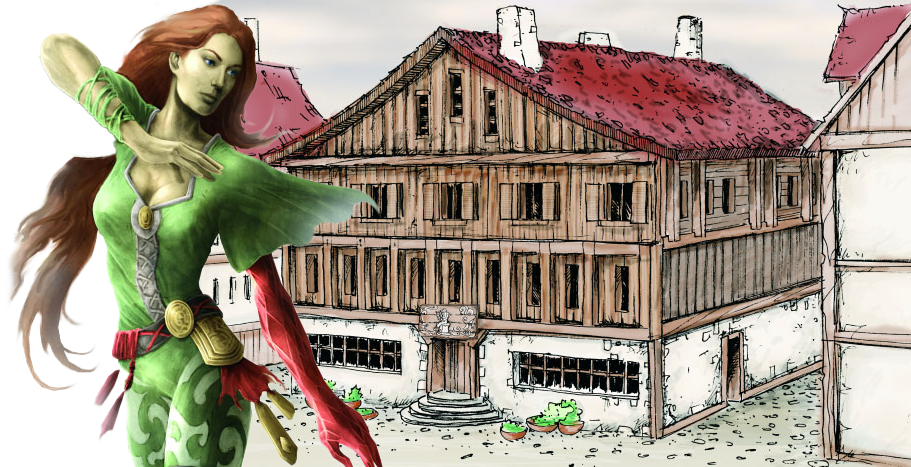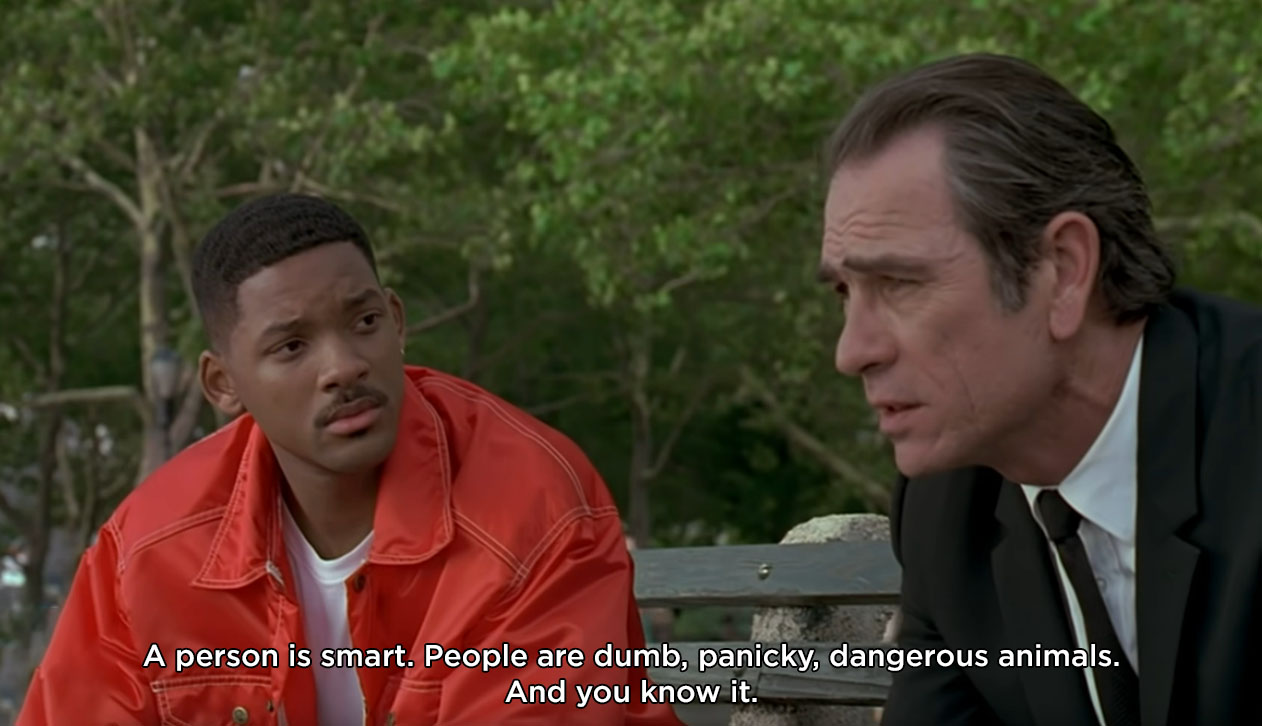DISCUSSING
In the Shadow of the Spire – Session 28A: The Maw Beckons
They left. Once they were safely in the carriage and driving away from the Cathedral they talked things over.
“I don’t trust him,” Tor said.
Dominic nodded. “You can put crimson robes on a pig, it’s still not a novarch.”
But they would practically be getting paid twice for the same job. There was no reason to pass that up.
Scenario hooks are the methods by which PCs become aware that an adventure exists, are enticed to engage the adventure, and/or are forced to engage the adventure.
If you’re prepping a plot, then you’ll usually only have a single scenario hook which will also tell the PCs what they’re supposed to do (in order to set the predetermined plot in motion). If, on the other hand, you don’t prep plots and, instead, prep situations, you’ll find that you have A LOT more flexibility in the scenario hooks you set up.
One particularly powerful technique is, in fact, to have multiple scenario hooks pointing at the same scenario. You may do this for purely practical reasons (fulfilling the Three Clue Rule, for example), but it can also be deployed to great effect.
One of my favorite techniques, actually, is to have two different patrons offer to hire the PCs for the same job; or, more accurately, for jobs involving the same scenario. This setup creates the context for framing tough dilemmas. (“Do we chase after the assassin to claim the bounty or do we save the Jewel of Erthasard from the river of lava?”) In fact, you can do this from the moment the job offer comes in: If Patron A asks them to murder the CEO of Abletek and Patron B asks them to work as the CEO’s security detail during an upcoming business conference, you’re immediately forcing the players to really think about the scenario they’re being hooked into: What do they want to have happen to the CEO? They can’t just sit back and passively do whatever they’re told to do. They’re going to have make a decision.
And, once they’re thinking about the situation and making choices for themselves, they may end up deciding they want something completely different from either patron.
Another technique I enjoy using as surprising scenario hooks: It’s easy to have a hook tell the PCs exactly what’s happening. “There are goblins in the Old Tower and they’ve been raiding the local farms.” But it can often be more effective to not do that: Maybe the villagers think there are goblins at the Old Tower, but it’s actually an infestation of imps. Or the goblins in the tower are actually just orphans, and they’re not the ones responsible for the recent raids.
A surprising scenario hook, as the name suggests, sets things up for the players to be surprised later in the scenario. And there are, of course, all kinds of ways for you to use this surprise, whether for dramatic or strategic effect.
In this session, I’m combining both of these techniques while hooking the PCs into the Banewarrens. Not only are they being simultaneously approached by two patrons with different objectives related to the Banewarrens, but the true nature of those objectives are not immediately apparent to the players.
In this case, this also means that the PCs can initially believe that there’s no conflict between the two commissions. The surprising reversal will come when they discover the truth and realize their twin masters cannot, in fact, be satisfied simultaneously.
We have another name for that: Conflict.
Delicious, delightful conflict.
The other subtlety here is Tavan Zith. In the original Banewarrens book, Zith does not actually function as a scenario hook. (There’s no way for the PCs to backtrack from Zith to the Banewarrens.) The encounter with Zith, however, functions as a justification: The PCs interacting with Zith is used to justify the Inverted Pyramid (and, in my version, the Church) deciding to hire the PCs for this job.
I had also, knowing these hooks for the Banewarrens were coming, made a point of laying groundwork with both Jevicca Nor and the Imperial Church earlier in the campaign. I wasn’t sure exactly how this earlier involvement with these factions would play out, but really any involvement would either (a) help justify the PCs getting approached for this gig and/or (b) create tension that could be similarly paid off in the Banewarrens. In practice, this turned out even better than I could have ever anticipated:
“We live in a time of prophecy,” Rehobath said. “And you seem to have a habit of finding yourselves in the middle of it.”
“What do you mean?”
“The extraordinary events in Oldtown today — in which I have been told you were involved — are the beginning of what will be a new chapter in history. Tavan Zith has returned to this world, and if the prophecies are true that means that the Banewarrens have been opened.”
I actually did take the further step of making Tavan Zith an actual scenario hook: The PCs could have either backtracked his path by canvassing Oldtown (they didn’t do this) or interrogated him (they tried this, but failed their rolls). This is what I refer to as a curiosity hook (i.e., no one tells the PCs to go check out where Zith came from; but Zith’s presence and extraordinary actions make them aware of the scenario, and they can pursue it and/or get involved with it if their curiosity so inclines them).
You may be thinking: “A die roll for the scenario hook? But what if they failed the check?!”
Well… they did fail. But I had three more hooks lined up, so that’s okay.
Of far more concern would be if the players ended up simply not being interested in the Banewarrens at all. What should we do about that?
First, I’ve spent some time priming the pump here by layering in a bunch of foreshadowing about the Banewarrens. For example, the “Drill of the Banewarrens” in Session 16A. By the time we go to Act II, the players were already intrigued by the Banewarrens, which made them eager to jump at clear hooks pointing them in that direction.
Second, another advantage of using multiple hooks is that it gives the players multiple reasons to be interested in the scenario: Do you want to make allies with the Inverted Pyramid? Pursue your relationship with the Imperial Church? Get close to one or the other so that you can screw them over later? Pursue the powerful magical treasures within? Figure out how to put an end to the threat posed by Tavan Zith?
If I just used one hook, the reaction to that hook might be negative: “We’d like to help, but we don’t have time,” or, “We don’t trust the Church, so we’re not going to tangled up with them.” But with multiple hooks in play, it actually becomes exponentially more likely that the players will see a reason why they want to get involved. (And, again, not just the ones you package up for them. They’re very likely to come up with their own reasons.)
Third, even if turns out that the players aren’t interested in this scenario, the fact that I’ve already set things up so that there are multiple factions involved with interests that directly compete with each other will make it super easy for me to figure out what would happen next even in the absence of the PCs. In this case, the Banewarrens would drop into the campaign’s background events. From that position, they would continue to affect the campaign world, and likely things that the players ARE interested in. It’s extremely plausible that this would generate additional hooks in the future, which may or may not pull the PCs in after all. (Albeit into a scenario that may have already been radically transformed by their earlier decision not to get involved.)
NEXT:
Campaign Journal: Session 28B – Running the Campaign: Multi-Threaded Campaigns
In the Shadow of the Spire: Index

















